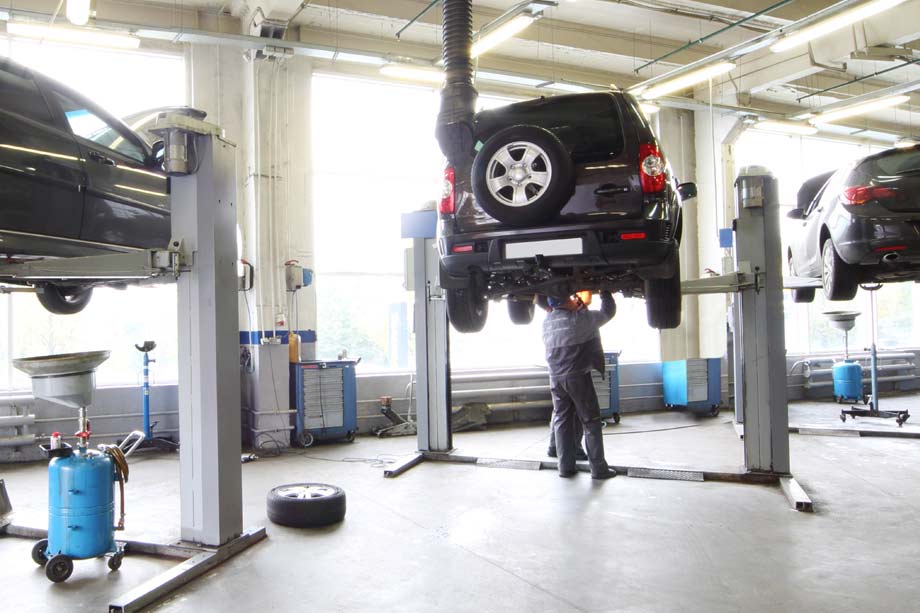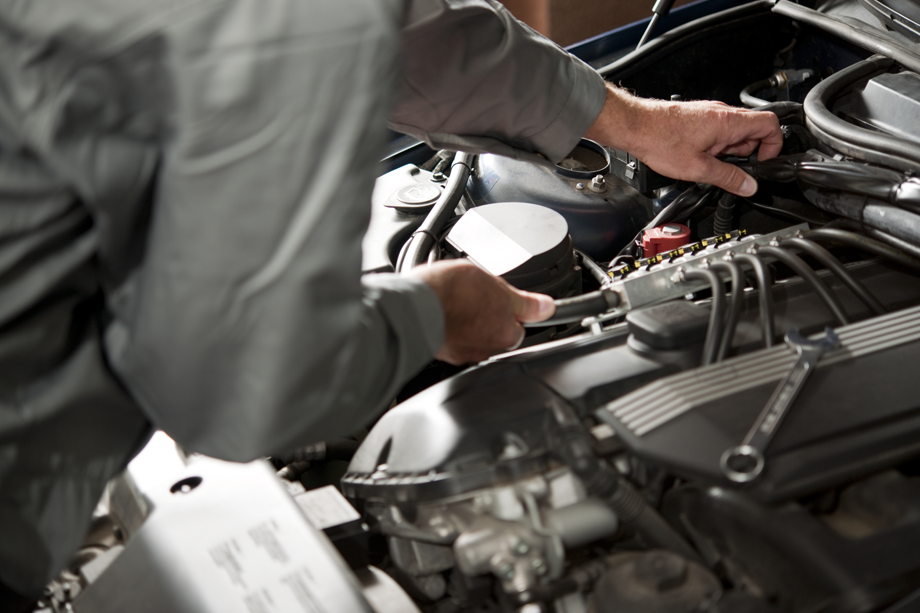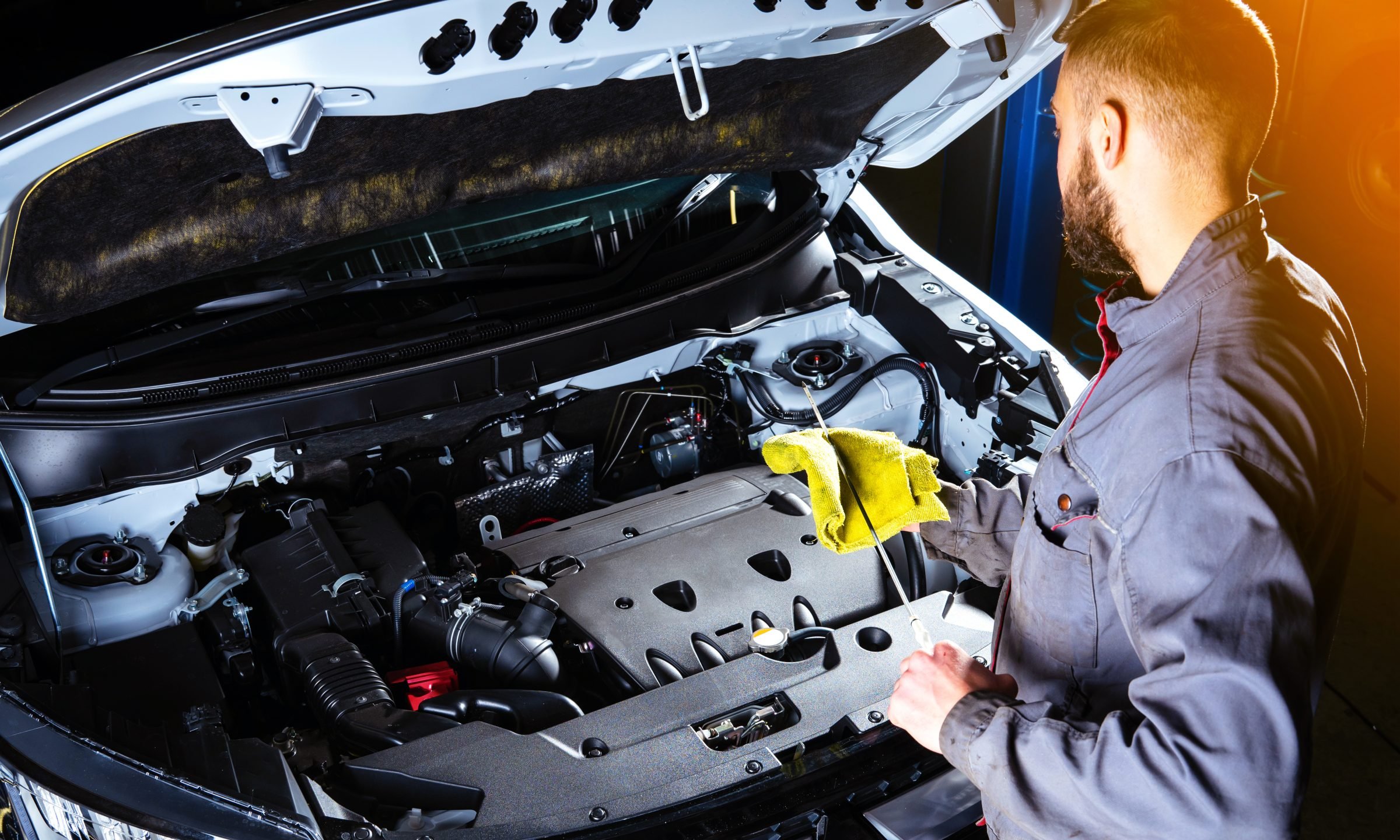All Categories
Featured
Your automobile relies on numerous liquids to keep its parts running smoothly and efficiently. Recognizing the duty of each fluid and remaining proactive in maintenance ensures your vehicle operates at its best.
![]()
Why It Issues: Without proper lubrication, engine components can grind versus each other, bring about significant damage. Maintenance Tips: Examine your oil level regular monthly utilizing the dipstick and complete if needed. Change the oil and filter according to your vehicle's service schedule, commonly every 3,000 to 7,500 miles relying on the oil type and driving conditions. 2. Coolant: Managing Engine Temperature. Coolant, also referred to as antifreeze, helps keep your engine's temperature within the optimal variety. It protects against overheating during warm weather and freezing during cold conditions.
Why It Matters: Inadequate or degraded coolant can result in engine getting too hot, which can cause serious damage. Upkeep Tips: Examine the coolant storage tank frequently and look for leakages or staining. Flush and fill up coolant as recommended, usually every two to five years. 3. Brake Fluid: Trustworthy Ceasing Power. Brake fluid is crucial for your vehicle's stopping system, transferring the pressure from your foot on the brake pedal to the brakes themselves. With time, brake liquid can absorb moisture, which minimizes its effectiveness.
Why It Matters: A jeopardized braking system can seriously impact your safety. Maintenance Tips: Inspect the brake liquid reservoir and ensure the level stays within this range. Change the liquid every two to three years or as needed. 4. Transmission Liquid: Smooth Equipment Shifts. Transmission liquid lubes the transmission components and guarantees seamless gear modifications. It also protects against getting too hot by cooling the system.
![]()
Why It Issues: Neglected transmission liquid can cause tailor slippage, overheating, or also total transmission failing. Upkeep Tips: Display the fluid's level and condition frequently. Replace it according to the maker's suggestions, typically every 30,000 to 60,000 miles. 5. Power Guiding Fluid: Effortless Maneuvering. Power guiding fluid assists in precise and smooth guiding. Reduced or infected fluid can make steering harder, putting stress on the system.
Why It Issues: Poor steering responsiveness can endanger your control over the automobile. Maintenance Tips: Routinely examine the liquid level and color, and leading it off as required. Be alert to leaks or unusual steering noises. 6. Windscreen Washing Machine Liquid: Clear Visibility. While it does not impact efficiency, windscreen washing machine fluid is vital for maintaining exposure, especially in negative problems.
![]()
Why It Issues: A clean windshield guarantees you can see clearly, reducing the threat of crashes. Maintenance Tips: Re-fill the washing machine fluid tank often and make use of a formula suited to your environment to avoid cold or streaking. Why Routine Fluid Upkeep is Necessary. Optimum Efficiency: Appropriate fluid degrees and high quality make certain all systems run efficiently. Safety And Security Assurance: Brake and power guiding fluids directly affect your capacity to control the vehicle. Cost Financial savings: Preventative maintenance avoids expensive repairs by catching prospective concerns early. Longevity: Liquids in good problem assistance lengthen the life of vital elements, consisting of the engine and transmission. Quick Tips for Effective Liquid Maintenance. Adhere to the Manual: Refer to your lorry's owner handbook for specific upkeep intervals. Look Out for Leaks: Puddles under your car can suggest fluid leakages that need prompt attention. Usage Recommended Products: Stay with liquids suggested by your lorry maker to avoid compatibility issues. Take Notice Of Indication: Control panel notifies or unusual performance can signal liquid issues. Final thought. Maintaining your vehicle's liquids is one of the simplest ways to keep it running effectively and securely. Whether it's engine oil, coolant, or brake fluid, each plays a vital role in your auto's overall health and wellness.

- Engine Oil: The Lifeline of Your Engine. Engine oil plays an important duty in lubricating the engine's moving components, reducing friction, and securing versus wear and overheating. In time, oil ends up being or deteriorates polluted with particles, which can jeopardize its efficiency.
Why It Issues: Without proper lubrication, engine components can grind versus each other, bring about significant damage. Maintenance Tips: Examine your oil level regular monthly utilizing the dipstick and complete if needed. Change the oil and filter according to your vehicle's service schedule, commonly every 3,000 to 7,500 miles relying on the oil type and driving conditions. 2. Coolant: Managing Engine Temperature. Coolant, also referred to as antifreeze, helps keep your engine's temperature within the optimal variety. It protects against overheating during warm weather and freezing during cold conditions.
Why It Matters: Inadequate or degraded coolant can result in engine getting too hot, which can cause serious damage. Upkeep Tips: Examine the coolant storage tank frequently and look for leakages or staining. Flush and fill up coolant as recommended, usually every two to five years. 3. Brake Fluid: Trustworthy Ceasing Power. Brake fluid is crucial for your vehicle's stopping system, transferring the pressure from your foot on the brake pedal to the brakes themselves. With time, brake liquid can absorb moisture, which minimizes its effectiveness.
Why It Matters: A jeopardized braking system can seriously impact your safety. Maintenance Tips: Inspect the brake liquid reservoir and ensure the level stays within this range. Change the liquid every two to three years or as needed. 4. Transmission Liquid: Smooth Equipment Shifts. Transmission liquid lubes the transmission components and guarantees seamless gear modifications. It also protects against getting too hot by cooling the system.

Why It Issues: Neglected transmission liquid can cause tailor slippage, overheating, or also total transmission failing. Upkeep Tips: Display the fluid's level and condition frequently. Replace it according to the maker's suggestions, typically every 30,000 to 60,000 miles. 5. Power Guiding Fluid: Effortless Maneuvering. Power guiding fluid assists in precise and smooth guiding. Reduced or infected fluid can make steering harder, putting stress on the system.
Why It Issues: Poor steering responsiveness can endanger your control over the automobile. Maintenance Tips: Routinely examine the liquid level and color, and leading it off as required. Be alert to leaks or unusual steering noises. 6. Windscreen Washing Machine Liquid: Clear Visibility. While it does not impact efficiency, windscreen washing machine fluid is vital for maintaining exposure, especially in negative problems.

Why It Issues: A clean windshield guarantees you can see clearly, reducing the threat of crashes. Maintenance Tips: Re-fill the washing machine fluid tank often and make use of a formula suited to your environment to avoid cold or streaking. Why Routine Fluid Upkeep is Necessary. Optimum Efficiency: Appropriate fluid degrees and high quality make certain all systems run efficiently. Safety And Security Assurance: Brake and power guiding fluids directly affect your capacity to control the vehicle. Cost Financial savings: Preventative maintenance avoids expensive repairs by catching prospective concerns early. Longevity: Liquids in good problem assistance lengthen the life of vital elements, consisting of the engine and transmission. Quick Tips for Effective Liquid Maintenance. Adhere to the Manual: Refer to your lorry's owner handbook for specific upkeep intervals. Look Out for Leaks: Puddles under your car can suggest fluid leakages that need prompt attention. Usage Recommended Products: Stay with liquids suggested by your lorry maker to avoid compatibility issues. Take Notice Of Indication: Control panel notifies or unusual performance can signal liquid issues. Final thought. Maintaining your vehicle's liquids is one of the simplest ways to keep it running effectively and securely. Whether it's engine oil, coolant, or brake fluid, each plays a vital role in your auto's overall health and wellness.
Latest Posts
Safeguard Your Investment with Professional Gutter Installment
Published May 22, 25
1 min read
Discover the Storied Past of Deauville Inn: From Speakeasy to Seafood Haven
Published May 20, 25
2 min read
Unlock WyHy FCU – Top Benefits for Your Financial Goals
Published May 20, 25
1 min read
More
Latest Posts
Safeguard Your Investment with Professional Gutter Installment
Published May 22, 25
1 min read
Discover the Storied Past of Deauville Inn: From Speakeasy to Seafood Haven
Published May 20, 25
2 min read
Unlock WyHy FCU – Top Benefits for Your Financial Goals
Published May 20, 25
1 min read